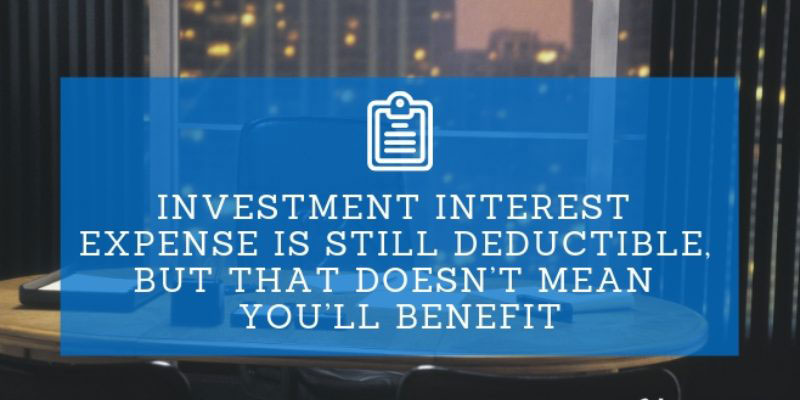What is a Condominium?
Feb 13, 2024 By Susan Kelly
Similar to an apartment, a condo is a merchandisable property. For various reasons, homebuyers may choose a condo over a single-family home. A condominium is another low-maintenance diminishing choice for seniors. Condominium fees are confusing. Many people have misconceptions about how condo fees are determined, where the money goes, and how expensive condo living is compared to single-family or townhome living.
However, misunderstandings concerning condo ownership frequently prevent prospective buyers from considering them. Here, we clear up some of the most widespread myths regarding condominiums.
Why own a condominium?
 Condominiums are an excellent choice for downsizing or budget-conscious purchasers because they are typically less expensive than single-family homes and require less care.
Condominiums are an excellent choice for downsizing or budget-conscious purchasers because they are typically less expensive than single-family homes and require less care.
Older people who want a less physically demanding home may find this a desirable feature. For someone who wishes to reside in the middle of a big metropolis, condos might be a desirable option.
Condo owners pay recurring monthly maintenance and repair costs for the complex's standard amenities, including the lawns, pools, lobbies, elevators, and recreation rooms.
Money Misconceptions About Condominiums

- Condominium Fees are a rip-off.
Regarding condominium fees, most buyers are fully informed of the applicable fees upon purchasing any condo properties, whether pre-selling or ready for occupation. These costs are typically included by developers and brokers when submitting condo unit buying applications.
Many purchasers view condo fees as an added expense compared to owning a home. It is crucial to consider what these fees cover before claiming they are a waste of money. Standard condo fees typically contribute to the upkeep and maintenance of the building. Still, they may also include sewer, heat, water, debris collection, and in some circumstances, cable TV and electricity. Think about the price you would pay for these products if you owned a home. Also, remember that you won't have to shovel the snow or trim the lawn in a condo. Therefore, you will ultimately have to contribute to the cost of hiring someone.
Excessive condo fees may indicate inadequate financial management of the condominium board, but you won't know for sure unless you read the condominium documents. Also, remember that the condo's board of directors, which consists of owners like you, decides on the condominium fees. In other words, these costs are set by owners who also have to pay them, and thus nobody benefits from them.
- A condominium is just like homeownership.
A real estate buyer who purchases a condominium unit becomes the condo unit owner. Most homeownership privileges will soon be accessible to the condo buyer. You acquire most of the rights of purchasing a freestanding property when you buy a condominium unit. This is because a condominium entails shared ownership regarding the rights that condo owners do not possess.
However, because the buyer would become a stakeholder of the condo community, these rights are constrained.
Therefore, you won't have as much freedom as you would in a house, even though you have the right to change your unit. Because most condo bylaws call for hiring a licensed professional, you might be unable to improve the electrical or plumbing by yourself.
Additionally, the areas of your unit that are referred to as "community property," such as the courtyard, windows, and balconies, could not be within your control.
Condominium owners must also pay monthly or annual parking fees, homeowners' association dues, and fees for any additional services offered to the community on top of their mortgage payments. Due to its community ownership, you must pay condominium dues to maintain the property.
- Condominium Fees should remain constant.
Condominium fees, unfortunately, seem to increase frequently, much like other costs, due to the building's operating expenses and inflation. Condo fees should be set using additional funds to cover significant repairs and the expected costs for the upcoming year. No one is making money, and owners will have to pay the difference if they are too high or too low compared to the building standards.
Most condo owners will find it difficult to escape a necessary expense, whether because the board tries to put off repairs to keep costs down or because owners want to sell to avoid paying their fair part.
Intelligent buyers will demand a discount for a building with inadequate maintenance or exorbitant condo fees. This discount is probably more expensive than fixing the issue from the start, as is frequently the case with real estate.
- Special Assessment Fees woes
Special assessment fees refer to a sum added to your monthly condo costs. It is gathered to cover additional expenses for tasks like restorations or to address money problems.
Even a professionally run condominium can be the victim of a "special evaluation." When the standard condominium fees (and the reserve fund they contribute) are insufficient to cover a significant repair, condo owners must pay an additional (sometimes hefty) cost. Many condo owners believe that their monthly fees would cover everything; however, as a condo owner, you are always responsible for the upkeep of the building.
Owning a condo is comparable to owning a single-family home. If you regularly set aside money for repairs, a sizable unplanned cost may force you to dip into your savings. Special assessments are often better for condo owners than the long-term alternative of increasing condo rates. This is because a single-time fee will pay for repairs without depreciating the value of each unit in the building.
Bottom line
Many myths that discourage homebuyers from considering a condominium or that make them angry and frustrated once they own one frequently result from an ignorance of what owners are ultimately accountable for and how condo ownership works. There are many poorly run condos, which might cause financial issues. However, since this punishment equally applies to the board members, no condo board seeks to get a payment or penalty from owners. Owners will have more control in a single-family home, making expenses easier to bear and possibly less obvious. Perhaps this is why prospective homeowners incorrectly believe this kind of ownership is much less expensive.

Understanding the Different Types of Property Deeds
Jan 09, 2024
A deed must be created to change who legally owns a piece of land. Typical types of deeds for several kinds of real estate are provided here

When Purchasing A Vehicle, You Should Be Aware of These 5 Costs
Dec 03, 2023
The expense of driving to work, rather than the cost of housing, generally dominates our monthly budgets. Because of the ever-increasing cost of new cars, consumers constantly search for the best deals. Car dealerships still need to turn a profit, though, and one way they accomplish this is by including several "extras" in the final price that weren't originally disclosed

Relationships Between Real Estate Agents
Nov 04, 2023
You must know your fiduciary responsibilities as a real estate agent. You take on the additional duty of representing your clients by entering into an agency arrangement.

How To Get A Student Loan With Low Interest
Oct 03, 2023
Subsidized as well as unsubsidized federal student loans are the most incredible low-interest options for many students. These loans come with reasonable fixed interest rates that are not determined by your credit score and other benefits for borrowers. However, because federal loans have a maximum amount one may borrow, numerous students may turn to private student loans to fill the gap.

Everything You Need to Know About Home Equity
Mar 19, 2024
Understand home equity, its definition, and implications. Learn how it works and its significance in personal finance.

What Are the Community Property Rules for Federal Income Tax Returns?
Feb 19, 2024
The term "community property" describes how a married couple's assets are treated under the law in certain states in the United States. In a marriage, both partners share equally in the breadwinner's earnings and the ownership of all tangible and intangible assets acquired by either partner during the marriage.

What You Should Consider About The Investment Interest Expense Deduction
Jan 25, 2024
Tax breaks and other provisions exist in the federal tax law to entice financial investments. One of them is the ability to write off interest paid on investments. Although there are limits on the amount and types of investments that qualify for something like the interest deduction, it is possible to write off interest payments made when using borrowed funds for investing purposes. Interest paid on a loan taken out to purchase an investment, for instance, a margin loan or a mortgage on investment property, is an example of investment interest expenditure. Divide the profits and losses from an investment that serves your personal and commercial interests.

Reasons Your Credit Limit Increase Was Denied
Feb 25, 2024
A greater credit limit provides you with more spending power, helps you make better use of your available credit, may assist in improving your credit score, and can even assist in your qualification for credit cards with even higher credit limits

An Overview of Your Annual Credit Report and How to Use It
Oct 17, 2023
Maintaining or improving your credit and looking out for identity theft symptoms may be aided by checking your credit report. Access your free credit reports each year at AnnualCreditReport.com. You may utilize this portal once per calendar year to obtain a free copy of your credit report from the three main credit reporting agencies as federal law requires

Do You Know: What is a Personal Pension?
Feb 28, 2024
Individuals can take charge of their retirement planning by establishing a personal pension. Sometimes referred to as "money purchase pensions" or "defined contributions," these plans have several names. The amount you receive from an annuity is often proportional to the salary you last earned. At the workplace, several companies provide employees with personal pensions.

What Is A Personal Loan?
Nov 16, 2023
If you can get a better deal elsewhere, going with a personal loan may not be the best alternative. However, there are also many compelling arguments in favor of picking them.

Review of AARP Company
Oct 11, 2023
The American Association of Retired Persons (AARP) oversees several community-based initiatives that aim to combat senior housing instability and social isolation. The AARP has also spearheaded and overseen initiatives to improve entitlement programmes like Medicare and Social Security